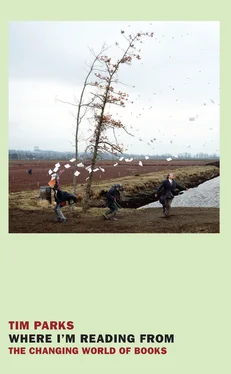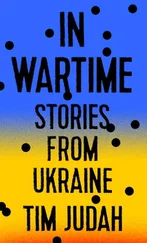WHY DO PEOPLE ask such stupid questions?
At a literary festival in Bordeaux I found myself being introduced to the French writer Frédéric Verger. I wasn’t familiar with the name, and he explained that he had published just one novel, but that it had been shortlisted for this year’s Prix Goncourt. Since he was evidently in his mid-fifties, I was surprised, and asked him how come he had started so late. He explained that he had tried novels in his early twenties, been rejected, spent much of his life teaching literature in high school and then decided to try again, this time with success. It was an unusual story. I asked him how his presentations were going at the festival and he said fine, except that at the end the public asked such dumb questions.
“Like?”
“Like why I’ve only written one novel when I’m fifty-four.”
Most writers complain about the people who come to hear them talk. Or rather the questions they ask. We need the public, of course, to feel important, to have a reason for presenting our books. When the seats are all full we say it is a good audience, we’re enthusiastic, especially if they show signs of participation when we read. If they laugh when they should, in particular. “But when it comes to questions, they always ask about your life,” complains Caroline Lamarche. She is sitting next to me at a book signing. The French have what I am sure is a counterproductive policy of getting authors to sit for hours at a time at book stands in sweltering pavilions just in case someone should want to buy a book of theirs and have it autographed. This way we look like country folk who have brought their beans to market, undermining commercially useful myths of our charismatic and mysterious talent. Still, the scene does give me time to examine the covers of Lamarche’s novels. They appear to be about love, sex, and violence. She seems an interesting lady and I would like to ask her a little about her life, but am afraid of seeming dumb.
In a car heading to the airport, I’m alone in the backseat while the two up front—one of the festival organizers and a fellow writer—chat away in French. I look up the writer’s photo in the festival catalog and find his name, Louis-Philippe Dalembert, he hails from Port-au-Prince. Then I see that his novel Ballade d’un amour inachevé “re-visits the earthquakes of L’Aquila and Haiti, at both of which the author found himself involved.” L’Aquila is in the Abruzzo region of Italy, my territory. I toss in a question in Italian and it turns out Dalembert speaks the language perfectly. His wife is from L’Aquila, mine from Pescara just down the road. He talks interestingly about being in the city the days after the quake, the question of whether to write about it and if so, whether a memoir or a novel. In fact it was while he was mulling this over that he went back to Haiti for a visit and got caught up in the quake there. I ask him how his presentation went. “Fine, but for the stupid questions afterwards,” he says.
Enough. It’s time to wonder whether these people who come to see us talk about our books are really asking dumb questions, or the wrong questions. Why are writers so determined to focus exclusively on their novels, as if there were no continuity between writing and life?
One of the problems is how difficult it is to talk usefully and entertainingly about books in these circumstances. One arrives in a tent with a hundred-odd seats, of which half are occupied. A presenter who may or may not have really read your book offers a potted version of your life that mainly amounts to age, bibliography, and accolades. The novel you are presenting is sketched out: a few items of plot, the suggestion of some kind of theme or message. Listening to this, you are overwhelmed by the enormous gap between the density and complexity, the sheer volume of what you have written and this drastic reduction.
Meantime, among the audience, a small group have already read the book, so anything they hear about it is infinitely less than what they already know. Another group have never read anything you’ve written, so they are hardly the wiser from these few formulaic crumbs. Those who’ve read other books of yours but not this one will be trying to fit what’s being said with what they’ve read, which, if you write very similar novels, may be easy enough, and if you write drastically different ones, well nigh impossible. In my case the present novel is set at a meditation retreat, but they may have read the one featuring kayaking in the alps, or a coach trip to take a petition to the European Parliament.
The only sensible approach would be to read a bit of the book itself. An author’s voice, posture, manner, body language, as they read the opening paragraphs of a story, their coldness or warmness, shyness or wryness, heat or humor, can give a powerful impression. Unfortunately, many festivals in Europe discourage reading. They’re afraid you’ll go on forever and bore them to tears. At most the person presenting you will read out a paragraph or two. As he does so you sit there bewildered that he should choose this of all paragraphs, amazed that he could get the tone of the work so wrong. He doesn’t hear it at all. Convinced you will be underestimated and misunderstood, you launch into an long “explanation” of your book, the initial idea, the models that inspired you, the particular spin you were looking for, but even as you do so you are aware that at some deep level, none of this is true. The whole business was all so much more elusive and complicated. The public watch pokerfaced, whether bored or sympathetic you don’t know. Finally the presenter says it’s time to ask if anyone has any questions. A hand is raised: “Have you ever been to a Buddhist retreat yourself?” an elderly woman asks. “If so, why and would you recommend it?”
So, is this, or is this not a stupid question?
Most of the people who attend these events are regular readers. And of course they have come to events before. They are not fools. They have long since understood that almost nothing of interest can really be said about books at an event. They know that a novel is too sprawling and too complicated and the meshing of minds that occurs when novelist and reader meet on the page too intimate and elusive a process really to be tackled in forty public minutes with iffy microphones and occasional entries and departures.
So what did they come here for? Enjoying books, reading frequently, the experience leaves them curious perhaps. They want to understand why books make such a deep impression on them. Perhaps they feel there is a surplus of meaning, beyond the novel’s obvious excitements that they haven’t been able to articulate. Something has come across to them that is not to be isolated in anything said on the page. In short, there is a mystery they would like to understand and that mystery is you. Or they construe it as you. They feel if they knew more about you, about writers in general, it might put their minds to rest as to the experience of reading. Perhaps.
For your part you know perfectly well that there is an absolute continuity between this book and your life. You will talk about the book as if you were in control of its creation, and perhaps you are to a degree, but behind and before that is a vast hinterland of experience and events over which you had no control. Only you could have written this particular book, not because you are better or more imaginative than anyone else, but because you are you. So much is said about the unlimited nature of the imagination, but actually the simple truth is that only DeLillo can imagine what DeLillo imagines and he could never imagine what Roth imagines, nor quite likely would he want to. The limit of this unlimited imagination is you. This book is your book. Who could it come from but you?
Читать дальше












